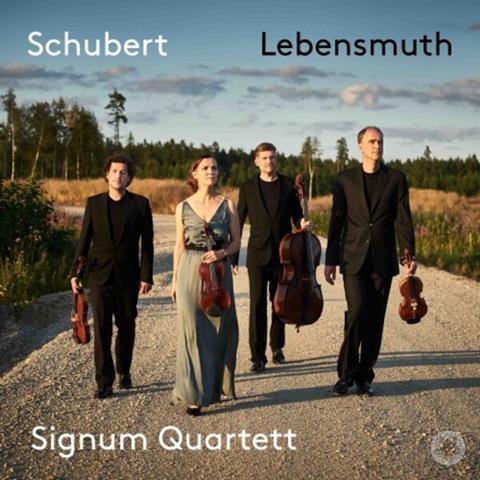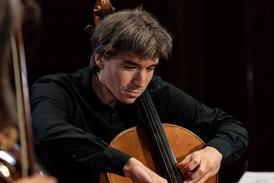Early and late Schubert, persuasively performed

THE STRAD RECOMMENDS
The Strad Issue: July 2023
Description: Early and late Schubert, persuasively performed
Musicians: Signum Quartet
Works: Schubert: String Quartets: no.1 in G minor D18, no.15 in G major D887; Songs (transcr. Xandi van Dijk): And den Mond D259, An die Musik D547, An die Nachtigall D497, Im Frühling D882, Lebensmut D937, Das Weinen D926
Catalogue number: PENTATONE PTC5187 042
The coupling of Schubert’s first and last works for string quartet makes a telling comparison. The G major D887, for all its challenges and ambiguities, is a known quantity. The works from Schubert’s teens, though, show the composer learning to build a musical argument, even as he struggles to make his material work for him. The First Quartet, from perhaps as early as 1810, is a case in point. Nominally in G minor, its slow introduction opens in C minor but then explores a range of keys before locating the home key for the Presto. The lopsided Minuet, with its piquant seven-bar phrases, is in F major, the slow movement and finale in B flat major. Four of Schubert’s wildest children, in a persuasive performance by the Signum Quartet that matches their youthful confidence and ambition.
The virtues of this ensemble come to the fore in D887. Its combined tone is rich and well nourished, even in the ghostly shiverings of the opening movement, the gleam around the edge of the sound not diminishing the desolation of the bleak slow movement. The players’ coordination is breathtaking both in terms of ensemble and intonation, and their observation of dynamics and articulation guarantees that the work’s emotional impact is fully realised.
Read: In the studio with the Signum Quartet – what is the recipe for a successful recording process?
Review: Signum Quartet: Aus der Ferne – Schubert quartets and lieder arrangements
Watch: Signum Quartet: Arrangement of Schubert’s song ‘Du bist die Ruh’
Song transcriptions (by the group’s South African viola player Xandi van Dijk) are placed around the two quartets, the fragmentary ‘Lebensmut’ (‘the courage to face life’) forming an upbeat to the travails of the G major, then ‘An die Musik’ coming across as a wistful memory in the wake of its finale. Thought-provoking programming, magnificent playing.
DAVID THREASHER























































No comments yet